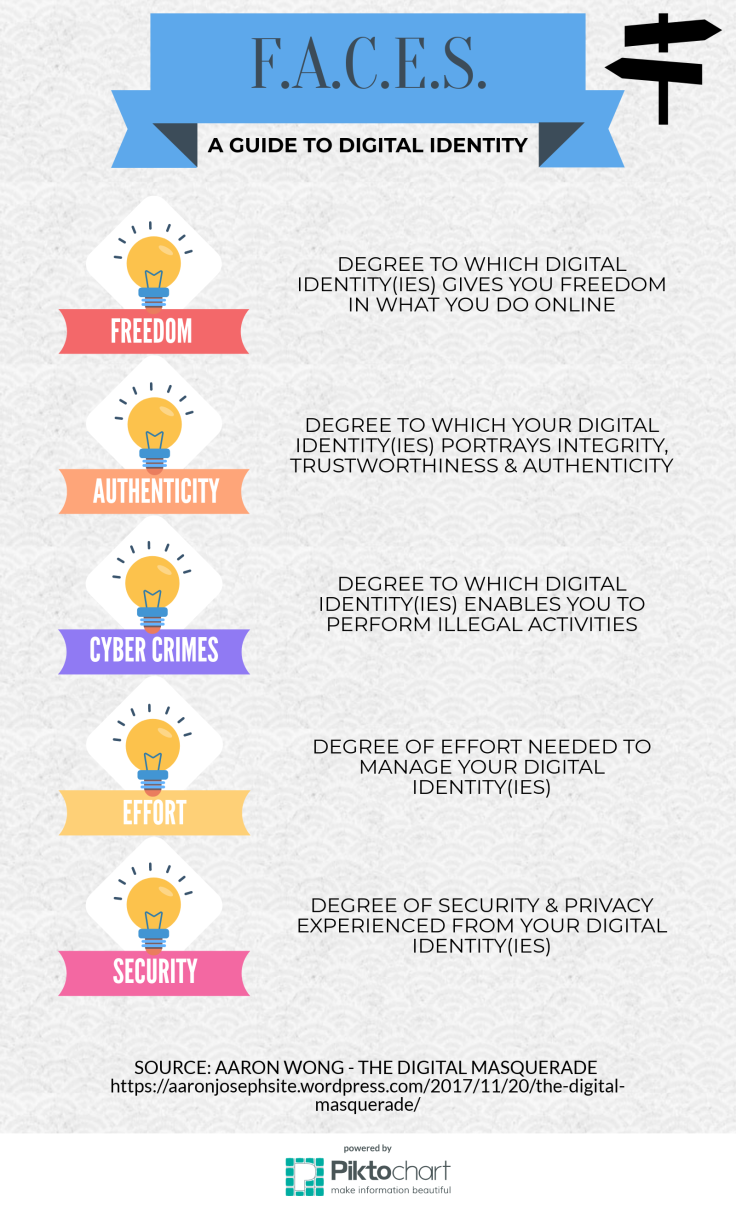Before #MANG2049, I never knew that there was a difference between having a single or multiple identity and always thought that having a consistent image throughout all social media platforms was the most effective. However, after going through this course and learning from my coursemates, I have learnt that having a single identity not only has a high chance of identity theft but also an even greater risk of the “unintended”.
After reading Aaron’s blog, he came up with a unique concept called F.A.C.E.S which can be used to identify the type of identity suitable for an individual.

Source: Self Produced
Aaron also uses the analogy of a Masquerade to demonstrate the idea of being anonymous online. Anonymity is a useful identity to have because it reduces the risk of identity theft and increases freedom of speech. Despite the many benefits, some people take it for granted and abuse this identity. As such, it is important to educate users on their social responsibility on the web and to also have safety nets in place when deviants slip through the cracks.
In addition, Sarah’s comment on having multiple identities on social media platforms such as LinkedIn has shown me that it is indeed a useful tool to have when trying to separate the personal from the professional.
Learning from this course, I have decided to adopt the integrated single identity- one identity for each social media platform. This identity is a mixture of both the single and multiple identity and allows me to remain authentic while still differentiating between personal and professional.
In conclusion, at the end of the day, no matter what identity is used, it is important to be a responsible user and be authentic in how you behave online.
(289 Words)
Comments:



 Source: Self-produced Via Piktochart, using information from Futurelearn (2017)
Source: Self-produced Via Piktochart, using information from Futurelearn (2017)